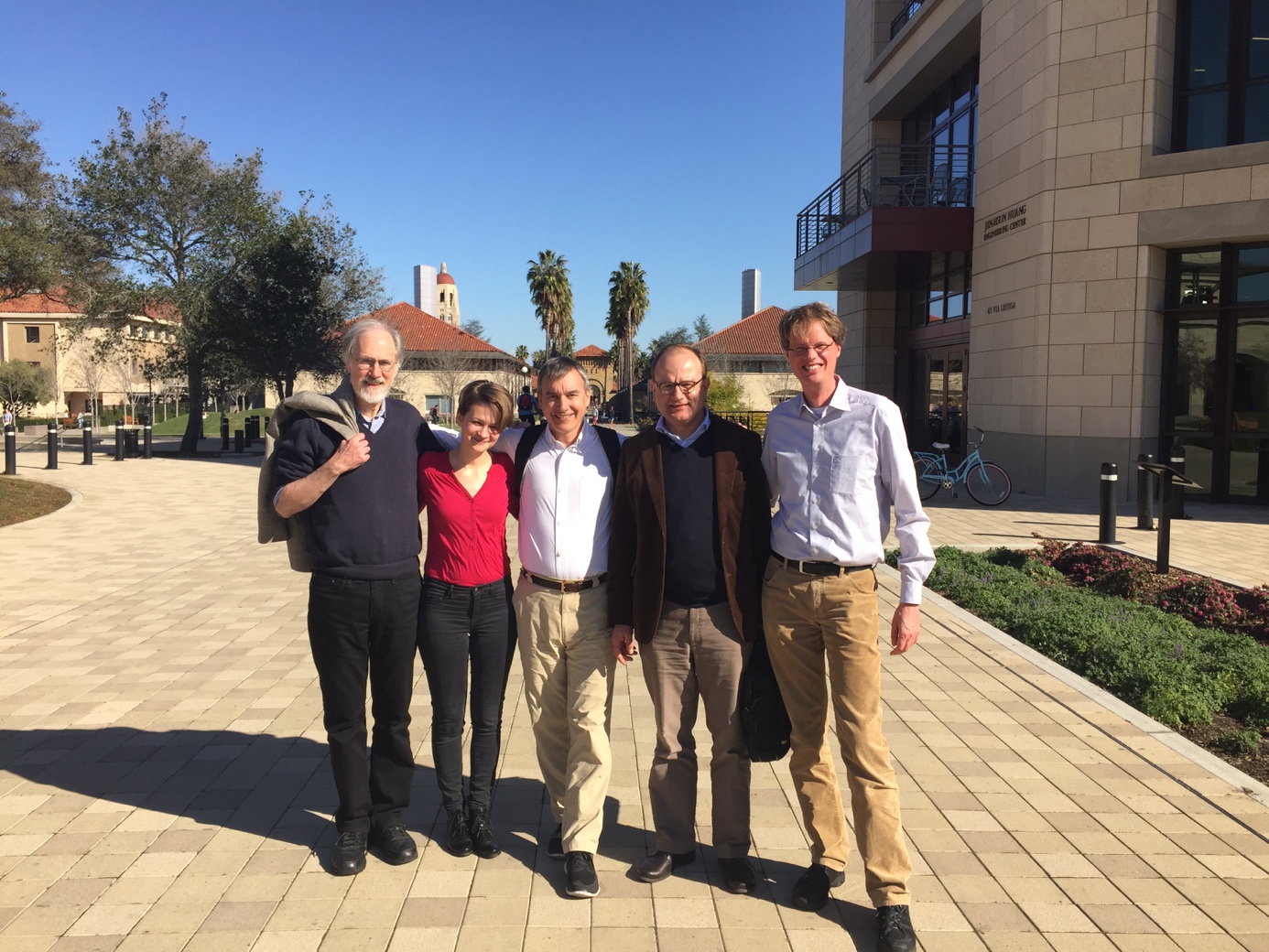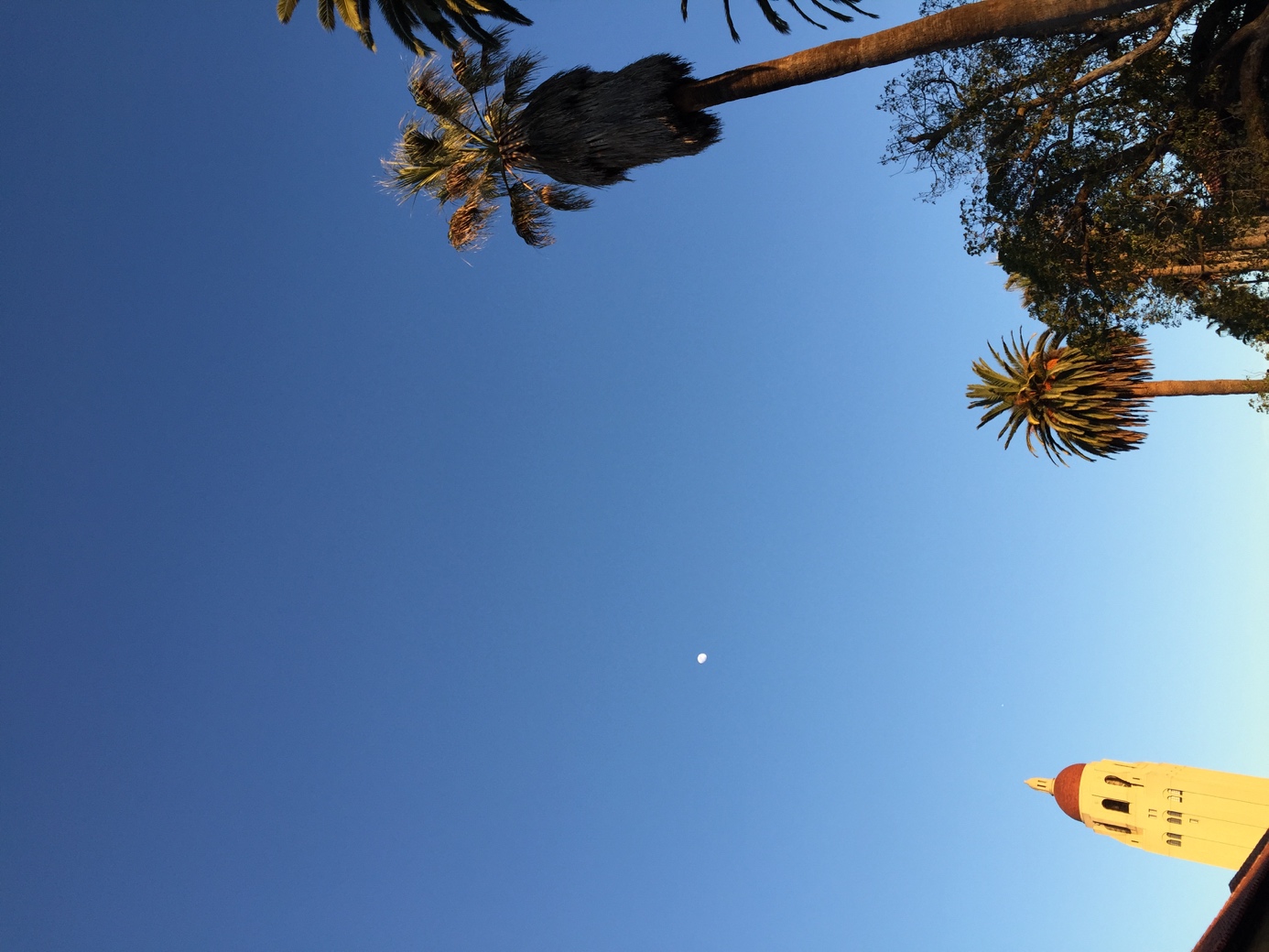Photo: private
In the melting pot of creativity and excellence
Professor Axel Ockenfels talks about his research in California
Closing the gap between science and real life – that is the task of modern economics, Axel Ockenfels believes. His research in game theory, behavioral economics and market design won him renown. Today, he is most interested in the factors that influence human behavior and how we can use these insights to resolve the pressing issues human society faces. Ockenfels, a recipient of the Gottfried Wilhelm Leibniz Prize, has been serving as the speaker of the University of Cologne's Excellence Center for Social and Economic Behavior (C-SEB) since 2015. Last year, Axel Ockenfels spent some time at Stanford University. In this interview he tells us about his experiences.
The interview was conducted by Nina Maria Kohl.
Professor Ockenfels, you spent a few months researching at Stanford University between February and July 2015. Why Stanford? What was the purpose of your stay?
There are several renowned scientists at Stanford who, like us, are doing research on the design of markets and incentive systems. And Stanford is located right in the middle of Silicon Valley, where research at the intersection of human behavior and economic design is in high demand. That is one thing we specialize in at our new Excellence Center in Cologne, and it is also my personal research area. Thus Stanford is the ideal place for me to introduce the research approaches we are developing in Cologne to academia and practice. At Stanford, I dealt with digital conflict prevention systems, with the design of international climate negotiations and with the question of how markets that function without prices have to be designed.
The University of Cologne (UoC) has strategic research partnerships with Radboud Universiteit Nijmegen und the University of Dallas in the framework of the Excellence Center for Social and Economic Behavior. What is the cooperation all about?
We cooperate with researchers from our partner universities to carry out projects, and we have faculty and student exchange schemes. In this context, the UoC’s International Faculty Program is particularly effective. It allows leading scholars and scientists to regularly come to Cologne for longer periods of time to teach and conduct research. These partnerships have been a significant factor in our achievements over the last few years.
You cooperate with researchers around the world, among them several Nobel laureates. How does this international dimension influence your work in the Excellence Center?
Our researchers compete in an international arena. This can only work if we also have international exchange. Our Excellence Center makes it easy for us to closely cooperate with scientists who are among the best in their fields. We jointly apply for external project funds and organize events and workshops at home and abroad. That way, we learn from each other and strengthen the University of Cologne’s international position.
What did you like best at Stanford?
I was particularly impressed by the extraordinary mix of people. Silicon Valley attracts the smartest businesspeople, the richest backers and the most talented and creative developers. Everyone wants to be a part of the digital future, and some want to get rich along the way. Stanford contributes the smartest and most highly ambitioned students and scientists – regardless of their background and status. The university and Silicon Valley inspire one another. That creates a vibrant local melting pot in which extraordinary creativity and excellence, coupled with hands-on entrepreneurship, are changing the world at a breathtaking pace. You can like the result or not, but it shows that impressive things can be created if you do not settle for the mediocre. And of course the weather in California helps!
According to the Global Thought Leader Index, since 2015 you can count yourself among the most influential thinkers in Germany, Austria and Switzerland. What does a Global Thought Leader do when he isn’t thinking?
I play with my children, watch American serials on Netflix or play and listen to music. But to tell you the truth, it’s hard for me to let go. I’m almost always thinking about something.

